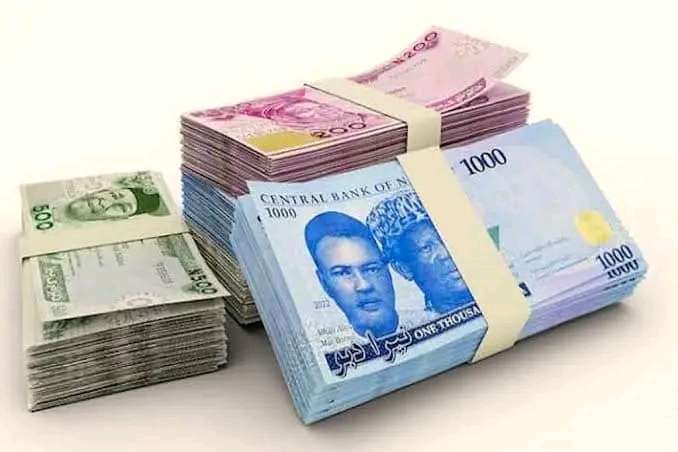The Naira is Nigeria’s official currency. In recent years, its value has been falling drastically when compared to major global currencies like the US Dollar, British Pound, and Euro. This drop has affected everything from the prices of food items to the cost of foreign education and importation.
But what exactly causes the Naira to fall? And why is it getting weaker despite government efforts?
This article will explain the causes of the falling Naira in simple terms, so that even beginners can understand what’s happening and why it matters.
What Does it Mean When a Currency Falls?
When people say a currency is “falling,” they usually mean it is losing value compared to other currencies. For example, if 1 US Dollar used to be equal to 500 Naira, and now it’s 1 Dollar = 1,400 Naira, it means the Naira has fallen.
This fall makes it more expensive to buy goods or services priced in foreign currencies. That’s why imported goods, fuel, school fees abroad, and foreign flights now cost more.
Why is the Naira Falling?
There are several reasons why the Naira is losing value. Below are the most important ones:
1. High Demand for Dollars, Low Supply of Dollars
Nigeria is a country that depends heavily on imports. We buy fuel, cars, electronics, clothes, machinery, and even food items from other countries. All these foreign transactions are mostly done in US Dollars.
When more people want Dollars than the country has available, the value of the Naira falls.
Nigeria earns most of its Dollars through oil exports. But when oil prices drop, or oil production reduces, there is less Dollar income. This creates scarcity, and the Naira weakens.
2. Drop in Foreign Reserves
Foreign reserves are like the country’s savings in foreign currencies. They are used by the Central Bank to stabilize the Naira when it starts falling too much.
But in recent years, Nigeria’s foreign reserves have dropped due to reduced oil income, debt servicing, and other financial pressures. When reserves are low, it becomes harder for the Central Bank to support the Naira.
3. Import Dependency
Nigeria produces very little and imports almost everything. This increases the demand for foreign currencies, especially the Dollar.
Every time someone imports a product, they need to convert Naira to Dollars. More demand for the Dollar means the Naira will fall unless we produce more locally.
4. Inflation
Inflation means a rise in prices over time. When inflation is high in Nigeria, the Naira loses its purchasing power. If things cost more at home, and the Naira buys less, it becomes less valuable on the international market.
A weak economy, poor infrastructure, insecurity, and rising fuel and food prices contribute to high inflation, which in turn affects the strength of the Naira.
5. Low Investor Confidence
Foreign investors bring in Dollars, create jobs, and help stabilize the economy. But when they don’t trust the country’s policies, security, or economic stability, they pull out their money or avoid investing.
Recent years have seen reduced foreign direct investment (FDI) due to political instability, corruption, inconsistent forex policies, and insecurity. This reduces the supply of Dollars and makes the Naira fall.
6. Multiple Exchange Rates
At different times, Nigeria has operated multiple exchange rates—one for official government business, one for banks, and one on the black market.
This system creates confusion and opens the door for speculation, round-tripping, and abuse. It drives people to the black market, where the Dollar is more expensive. This worsens the fall of the Naira.
7. Speculation and Panic Buying
When people or businesses believe that the Naira will fall even further, they rush to buy Dollars as a form of “protection.”
This creates artificial demand for the Dollar, which pushes its price up. As more people hoard Dollars, the scarcity increases, and the Naira weakens even more.
8. Insecurity and Poor Local Production
Insecurity in farming areas means food production drops. Less food leads to higher prices (inflation), and more imports to meet demand.
Also, local industries are struggling due to power supply issues, poor roads, and lack of government support. When we don’t produce locally, we depend on imports—and that puts pressure on the Naira.
9. Debt and Loan Repayments
Nigeria has borrowed a lot of money in foreign currencies. These debts must be repaid in Dollars or Euros.
When it’s time to pay, the government must buy foreign currencies using Naira. This increases demand for the Dollar, reduces our reserves, and weakens the Naira further.
How Does This Affect You?
The falling Naira affects every Nigerian directly or indirectly.
Prices of imported goods go up
Cost of foreign education and travel increases
Fuel prices rise, causing transport and food costs to go up
Businesses suffer due to higher import and raw material costs
Salaries remain the same, but the cost of living increases
This is why many Nigerians are feeling the economic hardship more deeply than ever before.
Can the Naira Be Saved?
Yes, but it will require strong and consistent efforts from the government, businesses, and citizens.
Possible solutions include:
Boosting local production and reducing dependence on imports
Diversifying the economy beyond oil
Attracting more foreign investments
Maintaining a stable and transparent forex policy
Controlling inflation through sound monetary policy
Improving security to support farming and local businesses
Encouraging Nigerians abroad to send money home through official channels
The falling Naira is not a mystery—it is the result of many years of over-reliance on imports, low oil revenues, inflation, insecurity, and poor economic planning.
To fix it, Nigeria must produce more, export more, and depend less on foreign products. Until then, the Naira may continue to struggle, and everyday Nigerians will feel the impact.
Understanding the reasons behind the fall of the Naira is the first step to demanding better policies and making informed financial decisions.




Leave a Reply